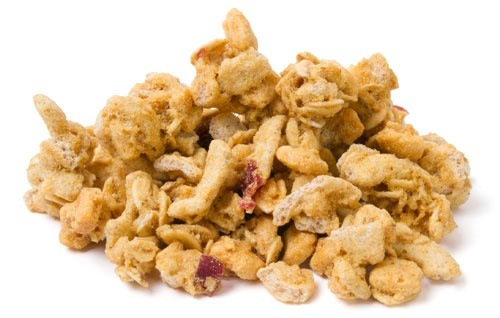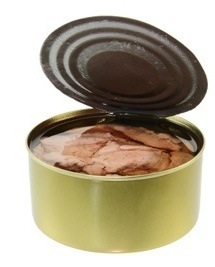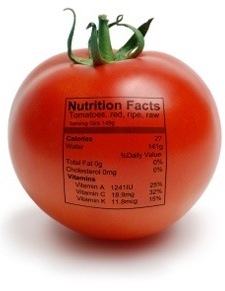Many of us will purchase a product because it claims to be natural, which we therefore think it means it will be of a higher quality. This is a marketing claim frequently made on product packaging, and particularly processed foods…but what does it really mean? How natural are the “natural” foods you eat?
The Case of Kashi Cereal

This isn’t the first time, however, that Kashi cereal has come under fire. In 2011, The Cornucopia Institute tested several cereals that billed themselves as “natural,” including Kashi. Surprisingly, many enrolled in the Non-GMO Project, contained significant contamination by genetically modified ingredients.
Manufactured Foods

It shouldn’t be surprising that manufactured foods labeled “natural” are, in fact, unnatural. The very idea of manufacturing foods is about as far from natural as one can get, and yet processed foods are just that: manufactured.
Greenwashing

The Difference Between “Natural” and “Organic”

Natural, on the other hand, is a marketing term. While laws exist to protect consumers against grossly misleading advertising, it is companies that decide how they will define the word “natural” on their products. In general, the key consideration has nothing to do with the environment or good health. Rather, profit is the driving motive behind use of the term.
Genetic Contamination

This is, in fact, a problem in America, because winds can carry seeds from GMO crops to cross contaminate organic crops, according to Agri-View, a Wisconsin agricultural newspaper. Currently, there are no testing requirements to ensure organic crops are not contaminated by nearby GMO, and this is a concern, especially when 94 percent of planted acres of soybeans and 65 percent of planted acres of corn are genetically modified.
Why should you be concerned? Check out our recent blog post on the dangers of genetically modified crops for more information.
Avoiding the All-Natural Trap
So how do you ensure you are feeding your family healthy, wholesome, non-GMO foods and not just falling for marketing hype? This question is one of the biggest reasons I am such a fan of a whole plant foods-based, organic diet. If you read the labels of processed foods, you’ll likely discover that a majority of them contain derivatives of one or both of the two most widely-planted GMO crops in North America: corn and soy. For me, this is more than enough reason to stay away from processed foods and stick with organic plant foods sourced from respectable farmers. Here are my tips for avoiding the all-natural trap.
Avoid processed and fast foods.
- If you do eat processed foods, look for “USDA Certified Organic” and “Non-GMO” on the label.
- Avoid foods that contain corn and soy or their derivatives.
- Eat mostly organic, non-starchy veggies and greens. Think of foods for energy, eating only what is natural from the earth.
- If you eat animal products, only purchase those labeled “USDA Certified Organic.”
- Buy local whenever possible and try to talk to the farmers to learn their growing practices.
- Stick with minimally processed, whole grains labeled “Non-GMO” or “USDA Certified Organic,” such as quinoa and amaranth.
- Other food ingredients that may contain GMO ingredients include sugar, vegetable oils (particularly canola), wheat, tomatoes, potatoes, flax, peas, and others.
- Be wary of “all-natural” claims. Don’t believe a package label. Do your research, read labels, and learn what all of the ingredients listed are before feeding foods to your family (check out the Center for Food Safety’s True Food Shoppers Guide to help in your research)
Watching out for your family’s health requires vigilance, but you can make it easier if you minimize or avoid processed foods altogether. By staying informed and reading labels carefully, you can avoid being fished into to the “all-natural” marketing trap.



I’m definitely one of those that eats Kashi cereal.. thinking it’s one of the best choices out there. hmm. at least now I am more aware.
Yes being aware is good! There’s always plain old organic oatmeal, which you can make with water and sweeten with stevia.
I read your book and bought some Xylitol, but it gives me a major head ache. Will stevia have the same effect on me?
So true! I have bought too many products that I thought were good for me only to throw it away after a closer look at the label! As a marketing professional, it makes my skin crawl to see the slimy tactics some companies use to pass their product off as “healthy”.
Your book has really changed the way I view food! I am having a hard time transitioning into a totally raw lifestyle but your book showed me that I can take small steps until I achieve my goal and still benefit along the way!
You’re awesome! :)
Great, thanks so much Kat for reaching out! Keep up the good work.
I agree that ” Natural” is misleading… BUT Kellogg and Kashi do have some products that are wonderful and ARE labeled USDA Organic, like Corn Maize and Indigo Morning. We should purchase these products, effectively showing the company that Organic is the way of the future. Purchasing their Organic products is the best way to “cast a vote” for Healthier, Sustainable, and safe food!
Yes Amy that’s right- you vote with what you buy.
Hi Kimberly,
I have been drinking the Glowing Green Smoothie, along with the hot lemon water for three days now. I’ve also ditched the animal products and most carbs. I feel really bloated today. Is that normal?
Yes, a lot of times the high amount of raw produce and fiber can make you temporarily bloated, or if your digestion was weakened from other foods.
Be sure to take probiotics and digestive enzymes to help your body adjust. xx
Hello, I love your blog and your book. But I have a question for you about gaining weight. I want to be healthy and not gain weight the wrong way. I want to follow your instructions in the book but im afraid that I will lose instead of gain. Any advice? :)
Hi Ingrid,
Even if you want to gain rather than lose, you still need to rebalance your gut and flora to ensure that your body is properly absorbing nutrients.
If you want to gain in a healthy way, increase your intake of nuts, avocados, keep some olive oil in your salads, etc. xx
my parents are forcing me into treatment for anorexia where they feed you eggs, nonorganic, 6x, bad combos. Im petrified can your body heal? is the emotional benefit worth it? is that terrible i feel like im ruining my body!!! Please respond should i run,
also can you do a post on the best brands to buy if you can’t do fresh thanks!
Hi Aubrey, If you’re going into treatment maybe perhaps you need to rethink or heal in your personal relationship to food and what it represents in your life. Take the time to focus on yourself. When you get out, you can adjust back to eating a healthy, wholesome diet in proper portion sizes, so don’t worry about that during your treatment. xx
Thank you Kim for the great read, I love your blog.
Can you recommend another probiotic other then Dr. Ohhiria, I can’t afford to take that one on a regular basis especialy since I want my husband to start taking them also.
On a side note for other readers, I bought the Beauty Without Cruelty face wash and it is amazing!!! It makes your skin sooo smooth and feel so clean. I will try there lotion next!
Hi Shanti, Great! I like Garden of Life but I think they are pricey too. The Probiotic Pearls are also a pretty good option, and more affordable. Check it out! xx
Hi Kimberly,
I am so sorry that this is unrelated to this topic but I have a question about my health that I am concerned about. I went on a diet of about 1200 calories a day to lose weight and now I have lost my period. I am 5’0 and 100-105 lbs. I used to weigh 120 lbs. I am only 18 years old. I havent had my period for about 5 months now which can classify me as having secondary amherronea(sp?) and I was wondering if you know any way that I can naturally bring my period back? I dont want to get osteoporosis when I am older. Thanks for your help!
Hi Mandy,
Thanks for reaching out. It’s critical for you to rebuild your health. I don’t want you to focus on calorie counting anymore. I want you to focus on eating healthier foods. When you do that, your weight will balance and your period should come back. You will have better skin and will look better as well.
Check out the articles here on the blog, and also the info in The Beauty Detox Solution for foods to focus on. Try to eat lots of fresh produce, almonds, chia seeds, quinoa, brown rice and veggies, etc.
Add more healthy fat to your diet, such as avocados, which digest well and will help rebalance your body at this time.
Take care and keep in touch!
Hi Kim,
I have the same problem as Mandy: I (without really meaning to) reduced my daily intake to way below what it should be and have lost my period. I have been eating only foods that I am pretty sure you would approve of (plenty of raw fruit and veg and millet and quinoa) but can’t seem to get my body back to normal.
I would really appreciate your help on this!
Hannah
Hi Kimberly!
I’ve been following you for a few years. I eat a healthy vegan diet. Drink 2 green smoothies a day! :) I’m a spinning instructor/personal trainer so my job is to be extremely active all the time. I’ve recently been very fatigued so I went to get blood work done to see if I’ve been getting all my proper nutrients. Everything came back normal, actually great! I’ve taken a few rest days off of exercising and I’m still so tired! I could sleep forever it feels like!
The only thing my doctors recommended is for me to start eating meat again (even though my levels of iron and B12 are great). Being vegan for 3 years now, I can’t even stand to think of eating meat again. What would you recommend?
Would really appreciate a reply!
Thanks so much!
Hi Amanda,
It doesn’t seem there is any nutritional reason for you to be eating meat. Try having dense, long-burning energy foods since you are so active, such as chia seeds and quinoa. Also, try taking some bee pollen, which I do when I’m really active. xx
Hi!
This is sort of on the same topic of processed foods I guess, lol! I read recently that there is MSG in nutritional yeast? Is this true? I’ve tried researching it and there’s so much conflicting info on the internet. I usually buy the Bragg’s brand. Is there a brand you can reccomend that you know doesn’t have MSG??
Thanks for always keeping us informed! You’re awesome :)
Hi Anna, I love the Kal brand. I’ve heard that MSG rumor with other Bragg’s products, and actually stopped using their liquid aminos. xx
I’ve been taking my green smoothies everyday and i love it !!! I noticed lately that my blood pressure is very low and would like to know how can i raise it ?